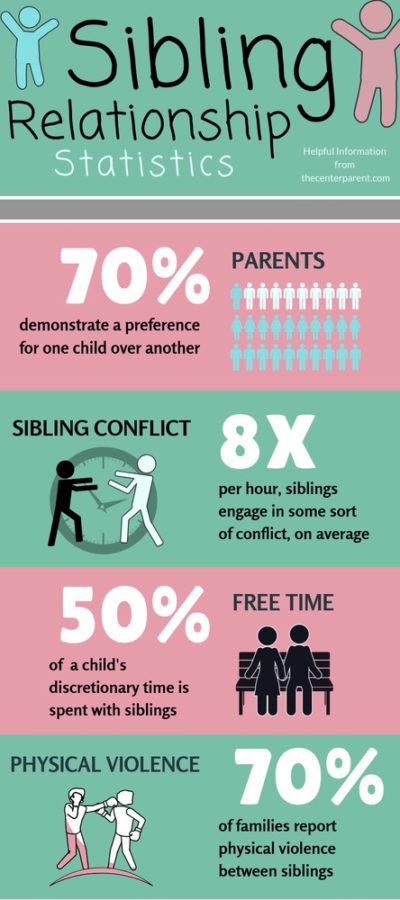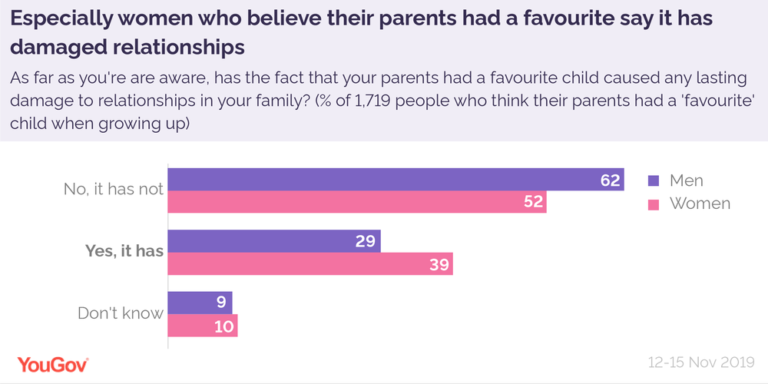Is sibling rivalry bullying? What every parent needs to know.


By Antoine G Larosiliere
Myself and a few other educators, who all have multiple children were debating the question, is sibling rivalry bullying?
It’s never easy to deal with the reality that bullying may exist inside our home, especially amongst our children. The educator in me wants to analyze it, but the parent in me wants to dismiss it. Are you like me and many other parents; wondering is sibling rivalry bullying? I did some research, and the answer to this question you’ll find both comforting and illuminating. Sibling rivalry is different from bullying. It’s commonplace for siblings to compete, argue and conflict with one another, but when the conflict becomes abusive, it’s bullying. It usually involves a clear power imbalance between the siblings. Sibling bullying is when the conflict becomes purposeful, frequent from the more powerful sibling.
“sibling rivalry is competition or conflict between siblings usually for attention from a parent.”
What is sibling rivalry?
Regardless if related or not, sibling rivalry is competition or conflict between siblings usually for attention from a parent. Often sibling rivalry will start even before the second child is actually born. Contention and competition is birthed by the attention the second child gets while still in the womb. Sibling rivalry involves…
- Arguing
- Name-calling, mocking, insulting and belittling
- Hitting or physical intimidation
- Plots of deception
- Tattle -telling
- Acts of jealousy

What causes sibling rivalry?
When you live with someone, it’s easy to become irritated or conflict with one another. It doesn’t matter if it’s your spouse, a roommate, another family member or a sibling. These conflicts can be more intense amongst younger siblings due to their greater propensity to be immature. According to research, some stressful factors that can contribute to siblings contention include…
- Getting a divorce: Siblings will often find themselves fighting for the attention of their parents, or taking out their anger by blaming one another.
- Expecting a new baby: Siblings might begin to compete for the attention of a parent even before the conceived child is actually born. They begin to fear they are not loved as or valued as much as before.
- Moving into a new home: The stress and chaos that comes with moving into a new home will contribute to frustrations that siblings will often take out on one another.
- Small or large age gaps between siblings: The wider age gaps might lead to one child feeling more powerful than the other. While smaller age gaps can contribute to greater rivalry in similar spaces.
- Jealousy: This is usually evident in children who are complimented and celebrated less than their siblings.
- A chronic illness: Chronic illnesses can affect children in so many ways. Some will feel helpless and impose their will on others to gain some control back. Some will feel they’re to blame and accept abuse as punishment.
- A disability: A disability can also make children feel helpless and increase their need to control others. Depending on the disability some siblings might also feel responsible.
- A lack of empathy: Lacking empathy doesn’t allow children to identify the abuse they are causing their siblings.
- A lack of conflict resolution skills: Children who lack conflict resolution skills, consistently engage in actions that intensify the conflict and make their relationships contentious.
- The death of a loved one: Grief can lead to outcomes amongst siblings such as, abuse, neglect, and even seclusion.

When does the rivalry turn into bullying?
Research from the Journal of Counseling & Development shows “up to 80% of youth experience some form of sibling maltreatment.” According to stopbullying.gov, bullying is an unwanted, aggressive behavior with the potential to repeat that involves an imbalance of power. The best way to identify when sibling rivalry turns into bullying is by recognizing these four bullying components amongst your children.
- Is the behavior unwanted? Pay attention to the interactions of your children. Sibling rivalry has more of a give and take to it. It’s more competitive than abuse. Is one child constantly saying, “stop” or “leave me alone?” If so, the behavior is unwanted and needs to stop. Also encourage your children to speak up if something is being said or done to them that they don’t like.
- Is the behavior aggressive (intentional)? We all understand people make mistakes, especially our youth, but are their unwanted behaviors consistently intentional. Are they aware that their siblings have expressed they don’t like the behavior? Do they disregard others’ unwillingness to participate in their poor behaviors?
- Is the behavior Repetitive? Do the siblings regularly participate in name-calling, humiliation, physical abuse or other forms of intimidation?
- Does an imbalance of power exist? Is there any perceived or observed imbalance of power that makes a sibling relationship likely to become a bullying one? Is there frequent and purposeful abusive behavior from a more powerful sibling?
Other signs to look for include… - Increased fighting: Is the fighting becoming more intense than normal?
- They are not making up: If the siblings don’t “make up,” it’s a sign of a greater problem existing.
- Child shows a lack of empathy: Is the sibling unaffected about the hurt they have caused? If so, this becomes a precursor for bullying to continue.
What are the causes of bullying amongst siblings?
Sibling rivalry escalates into bullying for a reason. The child who acts out is in need of something or desires something from someone. Researchers found most of the time sibling rivalry results from an older sibling resenting the younger for displacing their role in the family. Studies show that the child is looking for…
- Attention from a parent: Sometimes what may have started off as an attempt to get attention turns into something more serious.
- To cure boredom: Sometimes boredom is the reason the initial abuse starts. If the attacking child finds entertainment value in tormenting their sibling, the abuse can begin to morph into bullying.
- A reaction from their sibling: Sometimes the child enjoys the emotional drama that the sibling shows when verbally triggered or engaged.
Sometimes parents contribute to sibling rivalry becoming bullying when they…
- Play favorites: Parents can contribute to the bullying if they play favorites by saying things like “she’s the talented one” or “he’s the smart one.”
- Praise one child and criticize another:
- Constantly pitting one child against another:

What effects does Sibling bullying have on our children?
A recent study in Pediatrics found that “kids and teens exposed to an aggressive rivalry with their siblings tend to report more depression, anxiety and anger than other kids.” The effects of sibling bullying on our children can be both short and long-term. The survivors of this abuse often continue to struggle far into adulthood. Some of these effects include…
- A shattered sense of safety:
- Poor mental and emotional well-being
- A lack of interpersonal relationships.
- Experiencing internalized shame.
- Feelings of anger, fear, and guilt.
- Low self-esteem, anxiety, and depression for both the victim and the aggressor.
- Complaints of headaches, and stomachaches
- Victims could possibly suffer from PTSD, new phobias and nightmares.
- The development of sleep disorders.
- Some may have developmental delays.
- Some might also have social and academic difficulties.
- Some might run away or seek refuge at a friend’s home.
- Victims could possibly engage in substance abuse, or delinquent behavior.
- Some victims will have suicidal thoughts and engage in self-harm.
- Problems within a marriage
How can you prevent sibling rivalry from becoming bullying?
It’s always better to be proactive in preventing certain outcomes than to be reactive to the problem once it happens. In order to do this as parents, we must first not allow our busy and stressful lives to distract us from seeing the potential concerns in our homes. We must investigate every concern, no matter how small and spend as much time with our children as possible in order to be in position to see potential concerns. According to some studies, a few things we could do to prevent sibling rivalry from becoming bullying include…
- Stop the fighting and arguing between siblings before it intensifies.
- Intervene on early patterns of abusiveness.
- Try to level the playing field to balance out any real or perceived power imbalance between siblings. Example: If one sibling is bigger and stronger than the other, work on making the other sibling stronger.
- After each fight, make siblings “make up.”
- Teach your children how to be warm and empathetic to their siblings and others.

Once it becomes bullying, how do you make it stop? Unfortunately, some of us eventually find ourselves dealing with some form of sibling bullying in our home. When this happens, we need as much help as we can get.
- Don’t hesitate and make decisive decisions when dealing with the bullying.
- Set limits to any mocking, name-calling or arguing.
- Set appropriate boundaries and acceptable behaviors. Request their input to the rules as well as the consequences so they can have ownership of them.
- Remind your children that “fair” does not always mean “equal.” Some children need a little more than others.
- Be honest and transparent about problems and issues the family might be dealing with.
- Explain and present examples of competition and abusive behavior as well as the consequences that potentially exist.
- Teach your children proper dialogue, and how to handle new and challenging situations.
- Encourage your children to express how they’re feeling.
- Spend quality time with each child together and separately, so no one feels left out.
- Create a way for each child to have their own space without other siblings.
If your child shows more significant problems of anxiety, or depression; seek professional help.
With that being said, everyone fights and has arguments. Even our children, whether they’re related or not. If regular sibling rivalry starts looking like something more harmful, it’s wise to take a closer look. I hope this has been helpful. Also visit my YouTube channel for more insight to these topics.
The Bully Experience "Daniel's Story"

Sign up for our newsletter and Read the novel For Free!
Stay updated. Sign up for our newsletter, and get the first two chapters of The Bully Experience Daniel’s Story absolutely free.